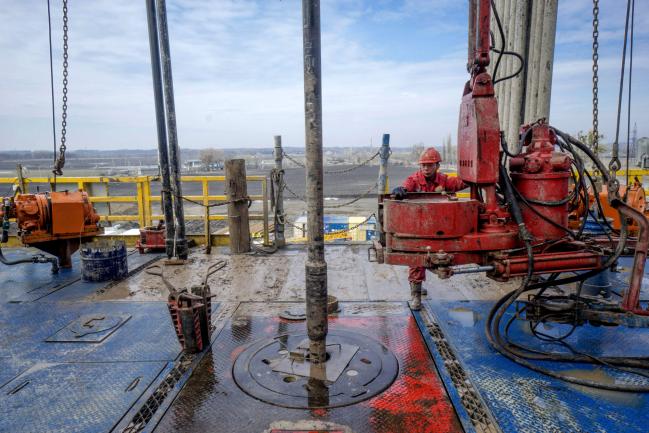(Bloomberg) -- The big, rushed and opaque deal for an enigmatic Chinese energy company to buy into Russia’s state oil behemoth has disintegrated.
CEFC China Energy Co.’s agreement last year to purchase a $9 billion stake in Rosneft PJSC came to end as the sellers, a consortium of Qatar’s sovereign wealth fund and mining giant Glencore (LON:GLEN) Plc, decided not to proceed with the deal. Qatar Investment Authority will instead take on a nearly 19 percent interest in Rosneft, Glencore said Friday, most of which had been originally slated for CEFC.
A Shanghai-based spokesman for the Chinese company declined to comment.
The collapse is a setback to efforts by Russia’s President Vladimir Putin to deepen strategic energy ties with China amid isolation from U.S.-led sanctions and a slump in oil prices. It also unwinds CEFC’s most high-profile achievement. The sprawling conglomerate rose from obscurity in recent years to become a conspicuous player in global energy through a series of ever-bigger deals across Eastern Europe and the Middle East, mixing with industry stalwarts like Glencore and China National Petroleum Corp.
To read more about the origins and mystery around CEFC, click here.
The Rosneft deal was the peak of CEFC’s rapid rise and the culmination of Chairman Ye Jianming’s efforts to align his business with the overseas political and economic goals of Xi’s "One Belt, One Road" foreign investment initiative. But things began to unravel this year as Ye came under investigation by Chinese authorities and stepped down from management as financial troubles began to emerge.
“The fact that CEFC was unable to close the Rosneft deal was a very unusual situation,” said Neil Beveridge, a Hong Kong-based analyst at Sanford C. Bernstein & Co. “Given the reported turmoil inside CEFC, putting an end to the drama in a swift manner is good for all parties involved.”
While the deal’s failure may scupper the Kremlin’s aim of China becoming a major Rosneft shareholder, Putin can still take comfort in its success muscling into the prized Chinese energy market over the last five years, pushing aside traditional suppliers Saudi Arabia and Angola and emerging as its biggest crude oil supplier.
“Russia is still a convenient and reliable choice for China given their warm political relationship and geographical vicinity,” said Li Li, an analyst at Shanghai-based commodities researcher ICIS-China.
Strategic Interest
An expansion of an oil pipeline linking the nations opened this year, doubling the capacity that Russia can send directly into the world’s biggest importer. And a massive gas pipeline is slated to start up next year. As well, five-year deal signed last year to supply CEFC with as much as 12 million tons annually of Russian crude remains in place, according to a Rosneft spokesman.
“The Chinese market has been, is and will be strategic for the company’s business,” Rosneft’s press service said in a statement.
CEFC’s participation in the Rosneft deal marked a departure for Beijing, which has traditionally relied on state-owned CNPC or China Petrochemical Corp., known as Sinopec Group, to take stakes in foreign companies. The firm is now among several other acquisitive conglomerates such as HNA Group Co. and Anbang Insurance Group Co. to come under scrutiny amid a crackdown on risky financing and splashy overseas purchases.
Amid the pressure, CEFC is now seeking to sell real estate holdings and financial units. China’s Citic Group is taking a 49 percent stake in its European operations, and Reuters has reported the the Chinese state investment giant is also looking at CEFC’s oil assets in Abu Dhabi. It also emerged last week that it may cut half its 30,000-strong workforce.
The Glencore-QIA consortium in December 2016 agreed to jointly acquire a 19.5 percent stake in Rosneft, then announced a deal about nine months later to sell 14.16 percent on to CEFC.
Now, as part of the new deal announced Friday, QIA will own 18.93 percent of Rosneft, making it the third-largest shareholder after the Russian state, which holds 50 percent, and U.K. oil major BP (LON:BP) Plc with 19.75 percent.
